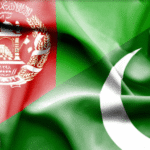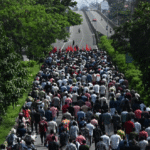Political Turmoil in Georgia recent weeks, Georgia has been thrown into a wave of political turbulence following the results of a disputed election. Accusations of fraud, public protests, and concerns from international observers have cast a shadow over the democratic process, bringing both domestic and global attention to the stability of the Georgian political system. This article explores the causes and impact of this election crisis, the response from international bodies, and the potential implications for the region and beyond.
1. Background: Georgia’s Democratic Journey
1.1. A Brief Political History
Since gaining independence from the Soviet Union in 1991, Georgia has embarked on a complex journey toward democracy. Despite facing significant challenges such as economic hardship, territorial conflicts, and political instability, the country has made efforts to establish democratic institutions and uphold the rule of law.
1.2. Democratic Progress and Setbacks
Over the past two decades, Georgia has made strides in building a democratic political structure, including holding regular elections and establishing a multi-party system. However, the path has not been without setbacks, with previous elections marred by allegations of vote manipulation, voter intimidation, and media bias. This history of contested elections has heightened sensitivities and added to the intensity of the current political crisis.
2. The Disputed Election: Key Issues and Allegations
2.1. Allegations of Electoral Fraud
The primary opposition parties have alleged that the ruling Georgian Dream party manipulated the election results to secure its majority. Accusations include ballot-stuffing, intimidation of voters, and mishandling of electoral protocols. These claims have been echoed by independent observers and international organizations who reported irregularities during the voting and counting process.
2.2. Public Response: Protests and Demonstrations
In response to the alleged election fraud, citizens took to the streets in cities across Georgia, including the capital, Tbilisi. The demonstrations have drawn thousands of people, showcasing widespread frustration with the government and a demand for fair and transparent elections. The protests have been largely peaceful, although instances of clashes between demonstrators and police have been reported, heightening tensions in an already volatile situation.  for the more information click on this link
for the more information click on this link
2.3. Government’s Position
The ruling Georgian Dream party has denied all allegations, insisting that the election process was fair and transparent. Government officials argue that the opposition is attempting to undermine the democratic process by refusing to accept the results. This has led to a stalemate, Political Turmoil in Georgia with both sides refusing to compromise or engage in meaningful dialogue, further deepening the political crisis.
3. International Reactions and Involvement
3.1. European Union’s Stance
The European Union, which has closely monitored Georgia’s political development, expressed concerns about the conduct of the election. In a statement, EU representatives urged Georgian authorities to investigate any credible allegations of misconduct and to uphold democratic standards. The EU’s involvement underscores the strategic importance of Georgia, Political Turmoil in Georgia which has ambitions of joining the bloc and aligning itself more closely with European political norms.
3.2. U.S. Response and Calls for Dialogue
The United States, a significant ally of Georgia, has also voiced concern over the election controversy. American officials have called for an impartial investigation into the allegations and encouraged both the government and opposition to engage in dialogue to resolve the crisis peacefully. The U.S. has a vested interest in maintaining stability in Georgia, which plays a strategic role in the region, Political Turmoil in Georgia especially given its proximity to Russia.
3.3. Russia’s Reaction
Russia’s response has been more reserved, with officials refraining from overt commentary on the crisis. However, the situation is being closely watched in Moscow, as political instability in a neighboring country like Georgia has potential implications for Russian interests in the Caucasus region. Observers speculate that Russia could leverage the unrest to influence Georgia’s political landscape indirectly, Political Turmoil in Georgia a scenario that adds a layer of complexity to the crisis.
4. Root Causes of the Crisis: Structural and Political Factors
4.1. Weak Democratic Institutions
One of the underlying factors contributing to the current political turmoil is the relatively weak state of Georgia’s democratic institutions. The judiciary, media, and electoral bodies are often perceived as being influenced by political elites, Political Turmoil in Georgia which undermines public trust in the political system. This lack of institutional independence makes it difficult for elections to be conducted in a manner perceived as entirely fair and impartial.
4.2. Polarized Political Landscape
Georgia’s political scene has become increasingly polarized, with the ruling Georgian Dream party and the opposition locked in a bitter rivalry. This division has resulted in a zero-sum approach to politics, where compromise is viewed as a sign of weakness. This polarization exacerbates tensions, Political Turmoil in Georgia making it challenging for any party to accept election results without suspicion or accusations.
4.3. Socioeconomic Pressures
Economic hardship and high unemployment rates have added fuel to the political discontent in Georgia. Many citizens feel disillusioned by the slow pace of economic reforms, Political Turmoil in Georgia which has failed to provide sufficient job opportunities and improve living standards. This socioeconomic dissatisfaction has intensified the public’s frustration with the government, making the population more receptive to opposition calls for change.
5. Potential Paths Forward: Resolving the Crisis
5.1. Mediation Efforts
Given the intensity of the standoff, Political Turmoil in Georgia international bodies such as the EU and the OSCE (Organization for Security and Co-operation in Europe) may step in to mediate discussions between the ruling party and the opposition. Mediation could provide a neutral platform for both sides to negotiate a peaceful resolution and possibly agree on electoral reforms to restore public confidence.
5.2. Calls for New Elections
One proposed solution to resolve the crisis is to hold new elections, overseen by independent international observers. This approach has been supported by opposition leaders who believe a rerun of the election under more transparent conditions would provide legitimacy to the eventual outcome. However, Political Turmoil in Georgia the government has resisted this suggestion, citing the potential for further instability.
5.3. Institutional Reforms
For Georgia to move beyond this crisis in the long term, meaningful institutional reforms are essential. This includes strengthening the independence of the judiciary, ensuring a free and unbiased media, Political Turmoil in Georgia and establishing clearer guidelines for electoral integrity. Such reforms would help address the structural issues that have fueled political tensions and bolster the democratic process.
6. Implications for Georgia and the Region
6.1. Impact on Georgia’s EU and NATO Aspirations
The political instability resulting from the disputed election could slow Georgia’s aspirations to join the EU and NATO. Both organizations place a high value on democratic integrity and political stability, and the current crisis may raise doubts about Georgia’s readiness to meet these standards. Nonetheless, Political Turmoil in Georgia if the situation is resolved peacefully, it could serve as a test of Georgia’s democratic resilience and commitment to reform.
6.2. Security Concerns in the Caucasus Region
Georgia’s crisis comes at a time of heightened tensions in the Caucasus, a region marked by complex political dynamics and unresolved territorial disputes. Instability in Georgia could have a ripple effect, Political Turmoil in Georgia potentially exacerbating conflicts in neighboring countries. Moreover, it may draw the attention of regional powers like Russia, Turkey, and Iran, who have strategic interests in the area.
6.3. Economic Ramifications
Political instability is likely to have economic consequences for Georgia, including reduced investor confidence and potential disruptions to trade. Georgia’s economy, Political Turmoil in Georgia which is already struggling with high unemployment and inflation, may face further setbacks if the crisis drags on. Prolonged instability could also deter foreign investment, which is critical for Georgia’s economic development.
7. The Role of Civil Society and Media
7.1. Civil Society Organizations
Civil society groups have played an active role in advocating for transparency and accountability during the election crisis. These organizations have organized voter education campaigns, Political Turmoil in Georgia monitored the protests, and pushed for government accountability. The strength of Georgia’s civil society will be essential in promoting democratic reforms and holding political leaders to account.
7.2. Independent Media and Freedom of Information
Independent media has been instrumental in reporting on the election controversy, providing the public with essential information about allegations of fraud and the ongoing protests. However, Political Turmoil in Georgia media outlets face challenges, including political pressure and limited resources. Ensuring media freedom is critical for maintaining an informed citizenry and preventing the spread of misinformation.
8. Public Sentiment and the Path to Reconciliation
8.1. General Disillusionment with the Political System
Public sentiment in Georgia is marked by disillusionment with both the government and the political system. Many citizens feel that the current political elite is disconnected from the needs of ordinary people, Political Turmoil in Georgia prioritizing power over democratic principles. Rebuilding public trust will require genuine efforts to address these concerns, including greater transparency and responsiveness from political leaders.  for the more information click on this link
for the more information click on this link
8.2. Prospects for National Reconciliation
While the current crisis has deepened political divides, Political Turmoil in Georgia there is hope that reconciliation efforts could bridge these gaps. Reconciliation would require both the ruling party and the opposition to engage in constructive dialogue and commit to upholding democratic standards. Civic engagement and public participation in the political process could also play a role in fostering unity.
9. Conclusion: Georgia at a Crossroads
The disputed election has thrown Georgia into a period of significant uncertainty, Political Turmoil in Georgia challenging the country’s democratic institutions and testing the resolve of its citizens. The outcome of this crisis will have far-reaching consequences, not only for Georgia but also for the region and its international relationships.
For Georgia, this is a critical moment. The actions taken by both political leaders and the public in the coming weeks will shape the country’s future path. Whether the crisis leads to democratic reform or further division, Political Turmoil in Georgia one thing is clear: Georgia stands at a crossroads, and the direction it chooses will resonate for years to come. ALSO READ:- Former Bolivian President Claims Assassination Attempt: Car Allegedly Shot at During Attack 2024




